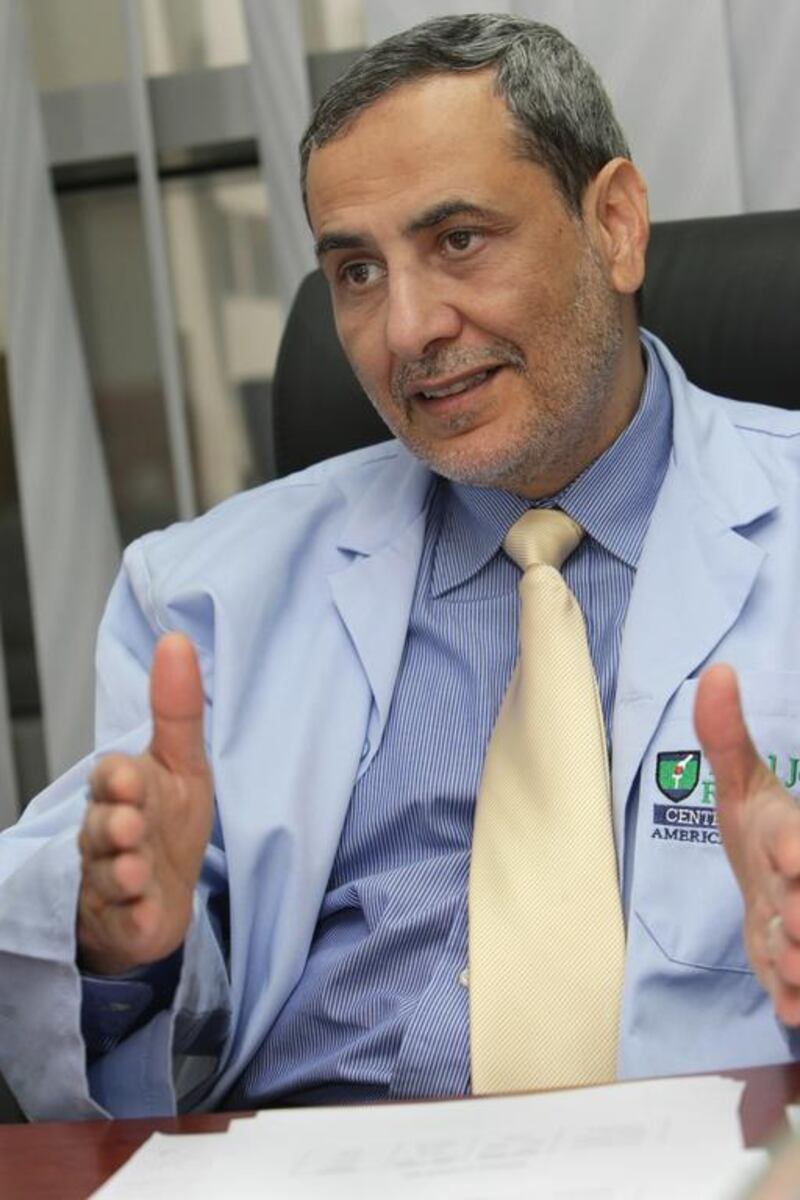DUBAI // Some health insurers are paying for older patients to have expensive, unnecessary knee surgery to treat arthritis or torn cartilage, doctors claim.
Knee operations for older patients are the latest procedures under scrutiny after claims of waste in the health industry.
The exact number of operations is unknown, but orthopaedic surgeon Dr Samih Tarabichi said he regularly saw patients who had been unnecessarily told they must have surgery.
“Unfortunately, in the UAE there are still a lot of surgeons who are recommending these kinds of knee surgeries on a daily basis,” said Dr Tarabichi, an Emirati surgeon at Burjeel Hospital, who has performed more than 8,000 knee and joint replacements.
“I see two or three patients every day who have this problem and have been told they need surgery. We don’t need to operate to clean a knee joint if they have mild arthritis.
“The standard in the UK and US for degenerative cartilage is not to operate as studies have shown it could be harmful for patients. It is taking time for that message to get across in the UAE. It will get to the stage where the procedure will not be covered by insurance.”
Possible harm from the procedure includes deep-vein thrombosis, infection, pulmonary embolism and death, in rare cases.
And the benefits of these operations have been questioned by researchers at the British Medical Journal.
The BMJ reviewed 18 studies on knee surgery compared with exercise and a placebo operation, for patients in Denmark and Sweden between 48 and 63 years old.
No significant benefit to the knee’s function was found after surgery.
Nine more studies were evaluated to assess the degree of harm that patients were at risk from in some cases. Deep vein thrombosis was the most frequently reported adverse effect.
Knee surgery is often only necessary when arthritic changes are so advanced that the patient cannot walk, but rarely in anyone under 55.
Insurance industry experts claim a culture of over-prescribing by doctors is pushing up the costs of health insurance.
The Health Authority Abu Dhabi (Haad) cut benefits for expatriates working for government agencies covered by the insurer Daman, and Emiratis under its Thiqa programme from April.
Last year, Haad paid Dh942 million in subsidies, up from Dh30.5m in 2010.
Orthopaedic surgeon Dr Anurag Sapolia performs up to 20 knee procedures every month at Medeor 24x7 Hospital in Dubai. “It has been a proven fact that arthroscopic surgery for pain management in older patients is often not necessary,” he said. “Physical therapies are a better option. Surgery is always a last resort.”
Arthroscopy is usually a day-care surgery. Patients usually need crutches for a week before rehabilitation work can begin.
“I don’t recommend surgery in older people unless there is structural damage, maybe only one patient every three months or so,” Dr Sapolia said.
“Other clinics are definitely pushing these kind of surgeries when they are unsuitable.”
More than 700,000 keyhole operations are performed each year in the US, and about 150,000 in the UK, on middle-aged or older adults with persistent knee pain.
Minnie Bustamante, a former hospital physiotherapist, agreed that surgery should only ever be a last resort.
“If it is not a severe injury then strengthening exercises through the use of elastics is a good option,” Ms Bustamante said.
“I have spoken many times with patients and doctors to encourage exercise ahead of prescriptions, but it is hard to change a culture here in the UAE.”
nwebster@thenational.ae







